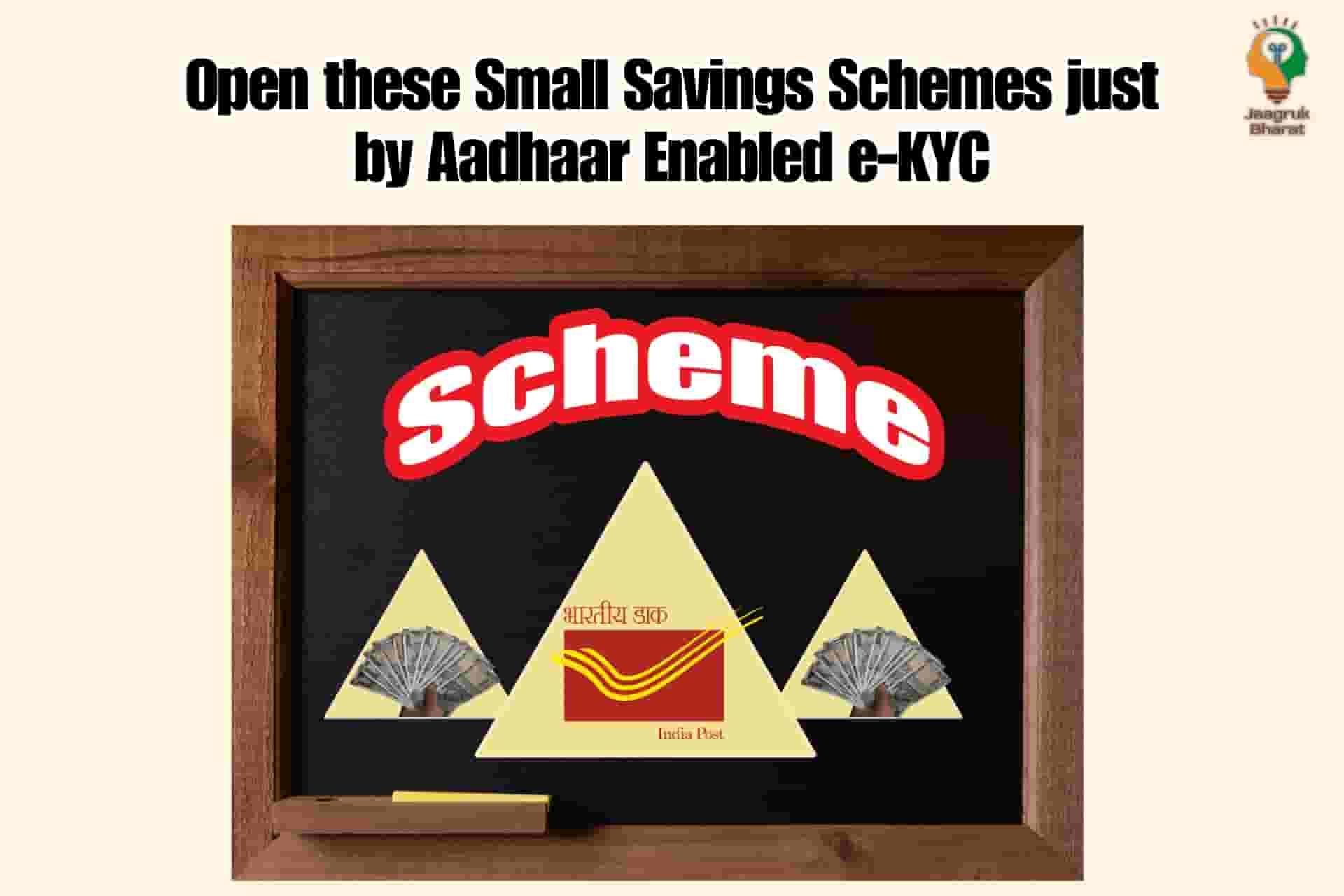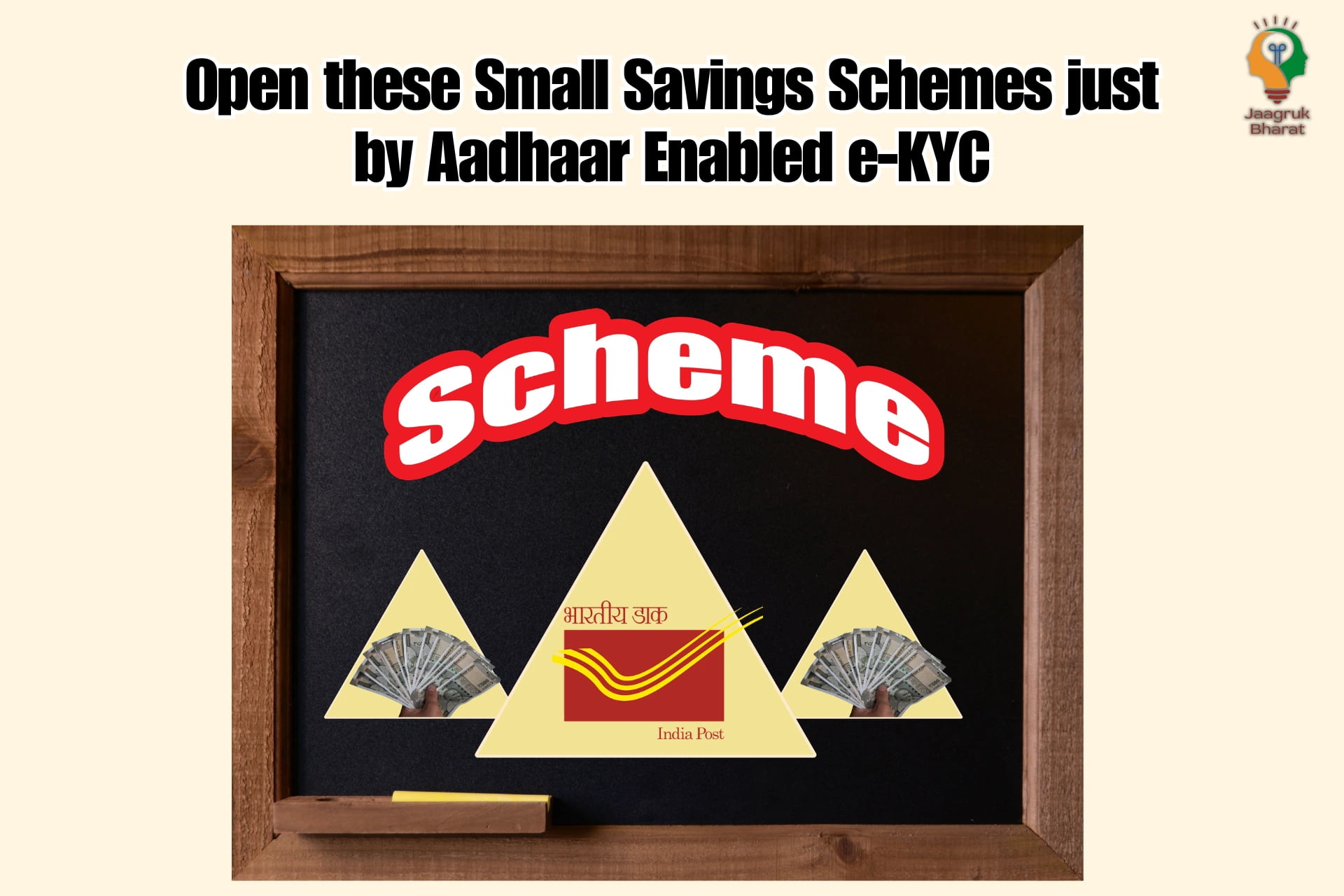Aadhaar e-KYC Simplifies Small Savings Scheme Enrolment: What You Need To Know?
Updated: 21-09-2025 at 8:02 AM
1k


Aadhaar-enabled e-KYC capability gained recognition from India's government as it became mandatory to use this system when people opened accounts in various small savings plans. The programme of Aadhaar card KYC aims to improve investment processes through simplified procedures while decreasing administrative paperwork to achieve increased transparency measures. Through its use of the Aadhaar infrastructure, the government works to extend financial services to all citizens.
This article explains everything you need to know about the new rules, documentation, thresholds, and benefits of the e-KYC Aadhaar process. In this article, you will get detailed information about the Aadhaar eKYC Online, eKYC authentication, Aadhaar offline eKYC download, e-KYC portal Aadhaar, its major attributes, and much more.
Overview
Since the Government has imposed that users hand in an Aadhaar card e-KYC to open small savings accounts, it is important that all users understand the major rules and deadlines. The table below is a simplified overview so that users can remain compliant and not incur a penalty.
| Element | Details |
|---|---|
| Applicable Schemes | PPF, NSC, SSY, SCSS, Mahila Samman Savings Certificate |
| Mandatory Documents | Aadhaar eKYC (or enrollment slip), PAN, passport-size photo |
| e-KYC Compliance Deadline | Within 6 months of account opening, if Aadhaar is not submitted |
| PAN Submission Criteria | ₹50,000+ balance anytime, ₹1 lakh+ annual credits, ₹10,000+ monthly deposits |
| Penalty for Non-Compliance | Account freeze, no interest payout, no maturity transfer |
| Key Benefits | Faster verification, reduced paperwork, improved fraud control |
| Governing Notification | Ministry of Finance SR/J-52017/2/2016-ITR/TPL (Vol. IV) dated 31 March 2023 |
Aadhaar e-KYC: The New Norm For Small Savings Schemes
The Ministry of Finance, through notification number SR/J-52017/2/2016-ITR/TPL (Vol. IV) dated March 31 2023, declared that investors must now use their Aadhaar and Permanent Account Number (PAN) for all small savings schemes, including PPF and NSC.
Users could previously fund the schemes through different types of official documents. When opening a new account, the directive now demands that customers offer their Aadhaar information or log an Aadhaar enrollment receipt. People who lack an Aadhaar number need to show their enrollment verification and provide their number to the system within half a year, or their accounts will freeze. The account remains frozen indefinitely once failure to follow this requirement occurs.
Also Read: A Glimpse Into The Interest Rates Of Various Savings Schemes
PAN Submission: Thresholds And Timelines
Under specific circumstances, both PAN submission and Aadhaar submission remain compulsory for all individuals.
-
The account must provide documentation when the balance reaches more than ₹50,000 at any moment.
-
The combined total of all credits in one fiscal year needs to reach more than ₹1 lakh.
-
The account becomes frozen until PAN submission is accomplished whenever the combined total of all deposits, together with transfers, surpasses ₹10,000 during a month.
The account holder needs to submit PAN within two months after the point when their transaction exceeds any mentioned thresholds. Accounts without submitted PAN will automatically become frozen upon expiry of the specified deadline.
What Are The Documentation Requirements For Account Opening?
Any small savings scheme requires account applicants to present three documents, including a recent photo and a PAN card, and an Aadhaar enrollment slip.
-
A recent passport-size photograph.
-
Aadhaar number or Aadhaar enrollment slip.
The new requirements were created to implement uniform KYC rules, which serve to verify investor identities.
Also Read: Budget 2025: Senior Citizens to Get Tax Exemption
Implications Of Non-Compliance
The failure to fulfil the new obligations to submit both Aadhaar and PAN information results in multiple adverse effects. If users fail to comply with Aadhaar e kyc otp or PAN submission rules:
-
The bank account of investors does not receive the accrued interest on account of non-compliance.
-
The financial institution has the authority to stop deposits made to PPF or Sukanya Samriddhi accounts.
-
Both the small savings scheme's maturity value and interest payments cannot be transferred to the bank accounts of investors.
All investors need to follow the updated guidelines because failure to do so will disrupt their benefits from small savings programmes.
What Are The Benefits Of Aadhaar e-KYC Integration?
The integration of Aadhaar paperless offline e kyc with small savings accounts presents various advantages:
-
The new system provides a single-source solution which shortens documentation requirements for simplified account setup.
-
Biometric authentication technology verifies investors through precision identity checks, thus they experience decreased fraud vulnerability.
-
The digital verification system speeds up KYC protocols, which results in faster account activation durations.
-
Implementation of this system leads to reduced operational expenses, which lowers both manual verification expenses as well as administrative processes.
Conclusion
The government advances digital financial operations and transparency through its requirement of Aadhaar-based electronic KYC for small savings programmes. The implementation of new investor requirements by digital security measures produces long-term benefits, which strengthen investment procedure efficiency and security, together with reduced administrative burdens. Following the new guidelines immediately will enable investors to maintain continuous access to these schemes while enjoying their benefits.
Why Choose Jaagruk Bharat For The Aadhaar Service?
Looking to complete your Aadhaar paperless e-KYC without delays or hassle?
Jaagruk Bharat provides a fast, dependable, and safe way to complete Aadhaar-related services (updates, corrections, and address changes) with an intuitive mode of step-by-step instructions, doorstep support in selected areas, and a comprehensive support helpdesk. For all users, Jaagruk Bharat's system will ensure that users do not have any confusion or are delayed by the e-KYC process.
Get the latest updates on government schemes and policies with Jaagruk Bharat. Join India's biggest Jaagruk Bharat community. Share your thoughts, questions, and favourite topics with us.
0
0
1k
0
0
1k Views
0
No comments available





Our Company
Home
About
T&C
Privacy Policy
Eula
Disclaimer Policy
Code of Ethics
Contact Us
Careers
Cancellation & Refund Policy
Categories
Women
Insurance
Finance
Tax
Travel
Transport & Infrastructure
Food
Entertainment
Communication
Government ID Cards
E-commerce
Traffic guidelines
Miscellaneous
Housing and Sanitation
Sports
Startup
Environment and Safety
Education
Agriculture
Social cause
Employment
Disclaimer: Jaagruk Bharat is a private organization offering support for documentation and government scheme access. We are not affiliated with any government body. Official services are available on respective government portals. Our goal is to make processes easier and more accessible for citizens.
All Copyrights are reserved by Jaagruk Bharat